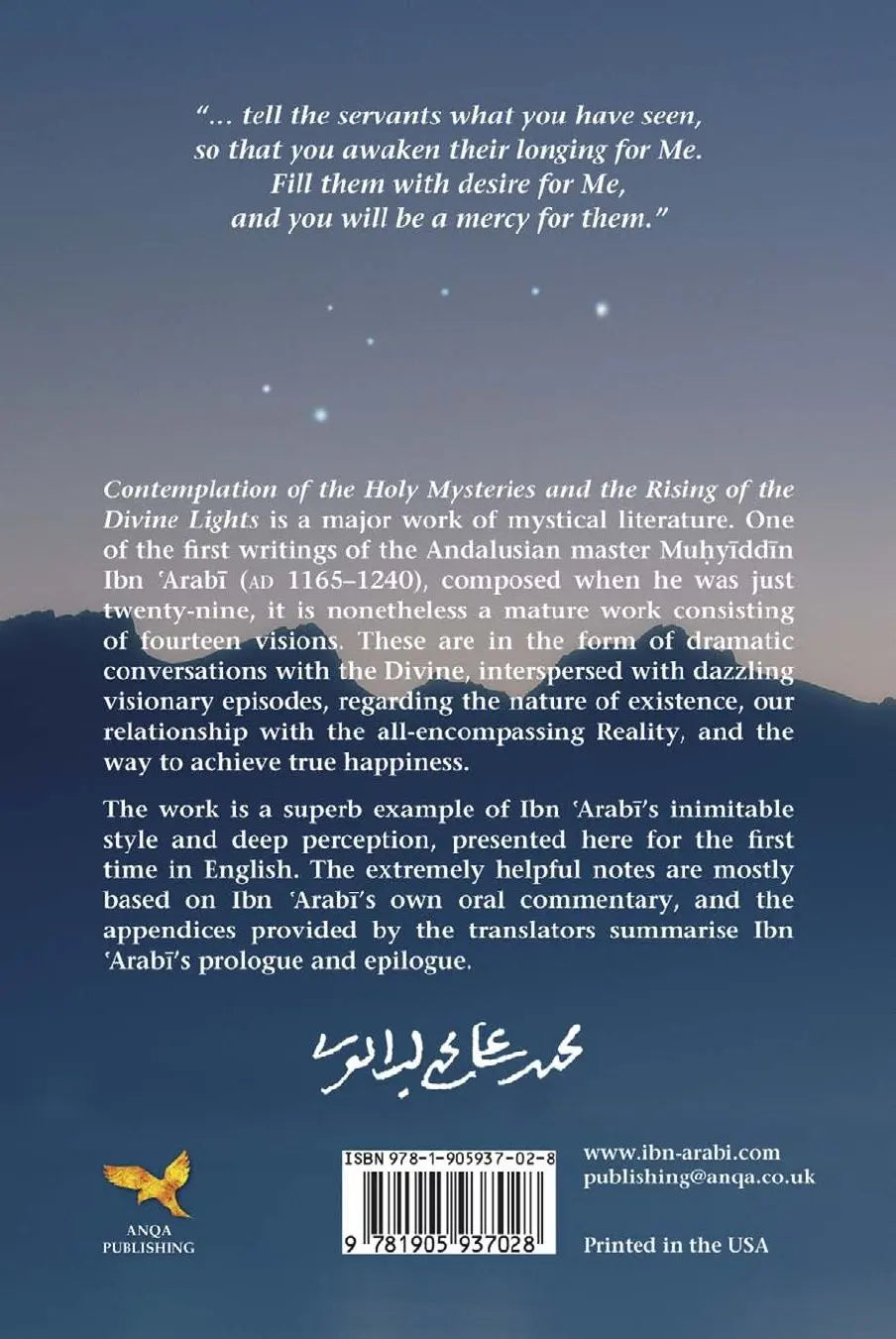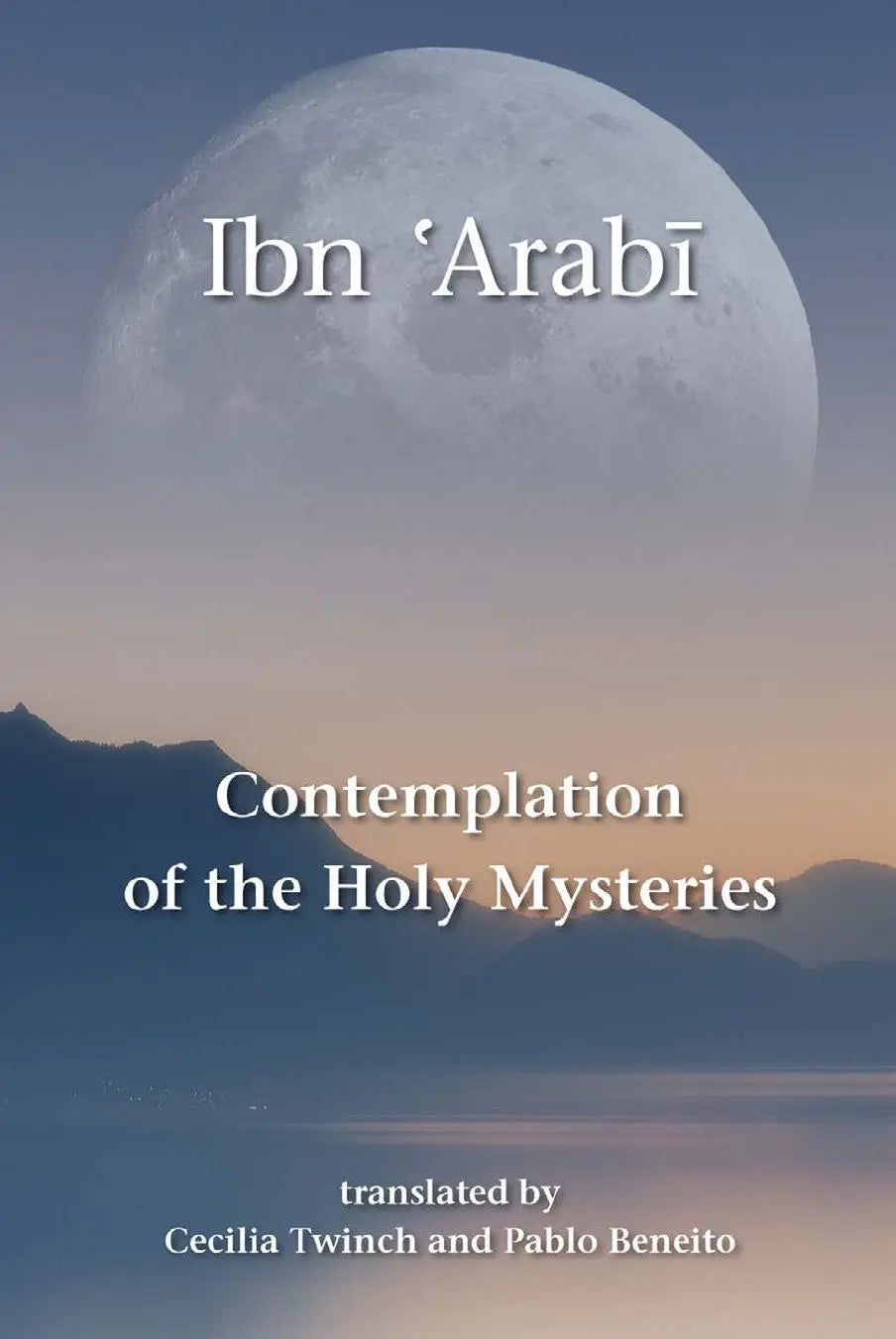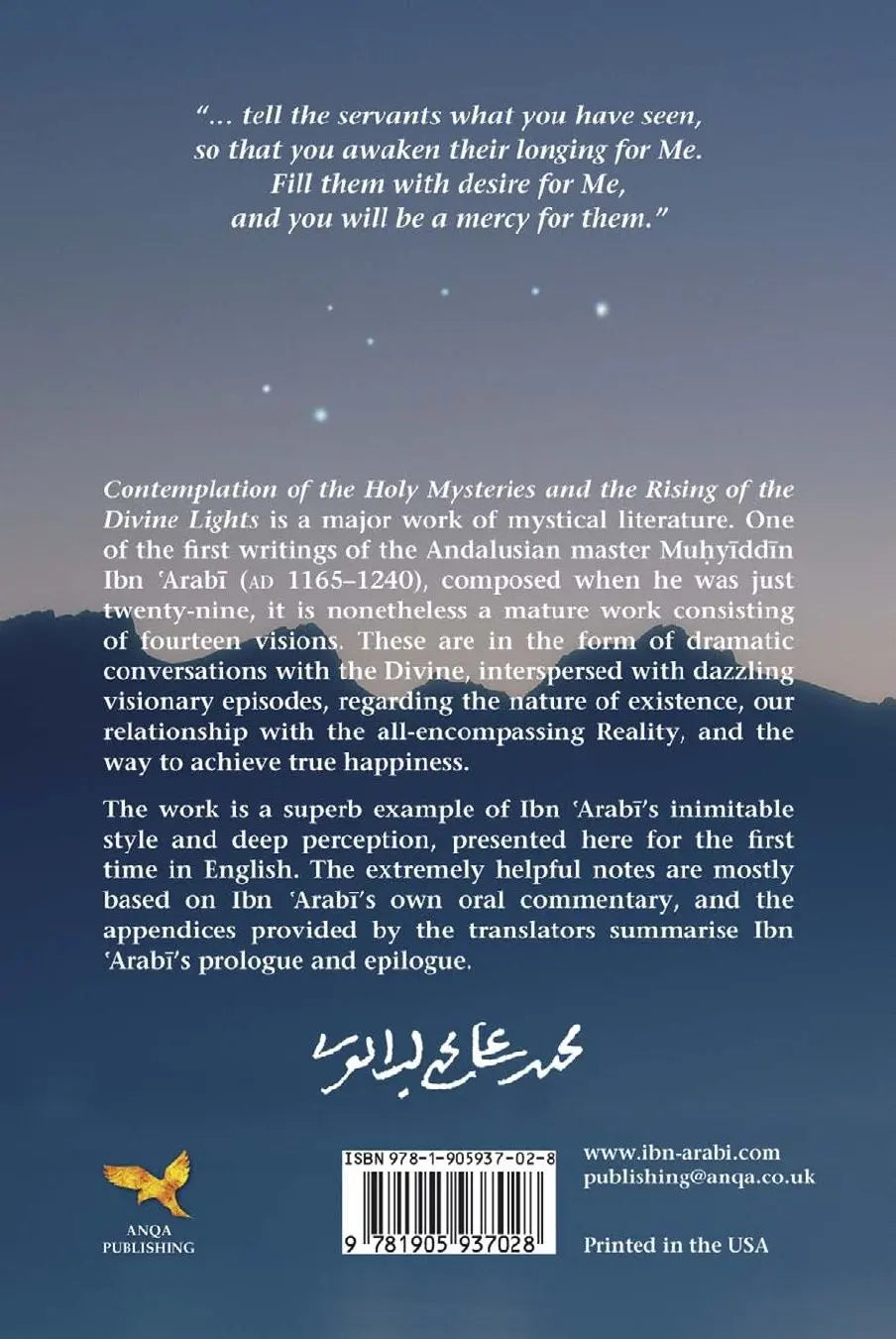About The Book
One of Ibn ʿArabi's first compositions, the Contemplation of the Holy Mysteries (Mashahid al-asrar al-qudsiyya) is a major work of mystical literature. It was written in Andalusia in 1194 (590 AH).
It consists of a series of 14 visions, in the form of dramatic conversations with the Divine, interspersed with dazzling visionary episodes. The style is similar to that of the Mawaqif of al-Niffari, the famous tenth-century Iraqi saint.
These contemplations are full of astounding insights into the nature of existence, our relationship with Reality, and the way to achieve true happiness.
The English translation has been prepared by Pablo Beneito (who edited the original Arabic text) and Cecilia Twinch. It includes a full introduction, and notes based on the commentary of one of Ibn 'Arabi's disciples.
You are yourself the cloud veiling your own sun! So recognize the essential Reality of your being!
About The Author
Mystic, philosopher, poet, sage, Muhammad b. Ali Muhyiddin Ibn 'Arabi is one of the world's great spiritual teachers. Known as Muhyiddin (the Revivifier of Religion) and the Shaykh al-Akbar (the Greatest Master), he was born in 560 AH (1165 AD) into the Moorish culture of Andalusian Spain, the centre of an extraordinary flourishing and cross-fertilization of Jewish, Christian and Islamic thought, through which the major scientific and philosophical works of antiquity were transmitted to Northern Europe. Ibn 'Arabi's spiritual attainments were evident from an early age, and he was renowned for his great visionary capacity as well as being a superlative teacher. He travelled extensively in the Islamic world and died in Damascus in 1240 AD.
He wrote over 350 works including the Fusûs al-Hikam, an exposition of the inner meaning of the wisdom of the prophets in the Judaic/ Christian/ Islamic line, and the Futûhât al-Makkiyya, a vast encyclopaedia of spiritual knowledge which unites and distinguishes the three strands of tradition, reason and mystical insight. In his Diwân and Tarjumân al-Ashwâq he also wrote some of the finest poetry in the Arabic language. These extensive writings provide a beautiful exposition of the Unity of Being, the single and indivisible reality which simultaneously transcends and is manifested in all the images of the world. Ibn 'Arabi shows how Man, in perfection, is the complete image of this reality and how those who truly know their essential self, know God.
Firmly rooted in the Quran, his work is universal, accepting that each person has a unique path to the truth, which unites all paths in itself. He has profoundly influenced the development of Islam since his time, as well as significant aspects of the philosophy and literature of the West. His wisdom has much to offer us in the modern world in terms of understanding what it means to be human.
About The Translators
Cecilia Twinch first came across Ibn ʿArabi and Rumi when she was studying Modern and Medieval Languages (Spanish and French) at Cambridge University. Books donated by the Ibn ʿArabi and Rumi scholar R.A. Nicholson and his student A.J. Arberry, complete with handwritten annotations in the margins, were then on display on the open shelves in the University Library. At the same time, she also became involved with what became known as Beshara and benefited from the advice and wisdom of Bulent Rauf, who was the co-founder of the Muhyiddin Ibn ʿArabi Society.
She now lives in Oxford and is a Senior Research Fellow of the Muhyiddin Ibn ʿArabi Society.
Besides working as a teacher, translator and editor, she has written numerous articles and has lectured on Ibn ‘Arabi and mysticism worldwide.
In addition to Contemplation of the Holy Mysteries, her publications include Know Yourself: An explanation of the oneness of being (translated from Arabic manuscripts attributed to Ibn ʿArabi and to Awhad al-din Balyani). She is particularly interested in bringing alive the universal relevance of Ibn ʿArabi’s ideas in the world today.
Pablo Beneito is currently Professor at the Department of Translation and Interpreting in the Faculty of Letters, University of Murcia, Spain.
He has been studying the works of Ibn ʿArabi since he chose to do his doctorate in Arabic philology at the Complutense University of Madrid, after which he spent 9 years teaching at the University of Seville in the Department of Arab and Islamic Studies. He has also been a visiting professor at the Sorbonne in Paris (Ecole Pratique des Hauts Etudes), in Kyoto University (ASAFAS) and in Toledo (Escuela de Traductores).
As a specialist in Sufi thought, he has given courses throughout the world, and helped organise more than 14 international conferences. He heads MIAS Latina, a branch of the Ibn ʿArabi Society for speakers of Spanish, Italian and Portuguese.
He has edited and translated (into Spanish) Ibn ʿArabi’s Mashahid al-asrar and Kashf al-ma’na. He is currently working on several of Ibn ʿArabi's shorter treatises, including K. al-ʿAbādilah.
show more




